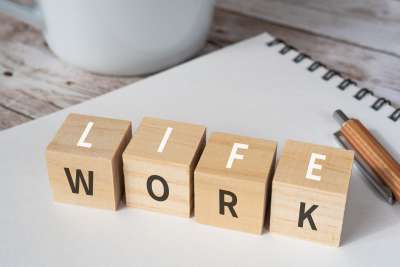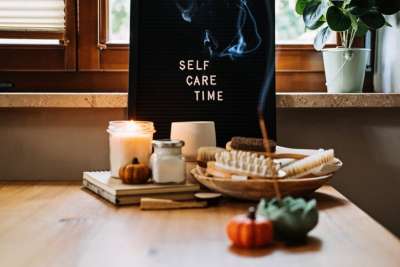Eat Well and Live Well.
I know that when it comes to my clients’ health, eating well and living well make a noticeable difference in how they look and feel. I can’t say specifically how it will show up for you, but it might be that your energy levels increase, you sleep better, your skin starts to glow or you even lose a few pounds. Before you know it, your friends will wonder what your new regime is! But, self-care and healthy habits don’t just happen overnight. They need time and persistence. Studies have shown it takes time for a new habit to become the default choice. We need to remember that establishing habits is a process and not an event.
What are habits and how do we establish them?
It is widely accepted that the average adult makes around 35,000 conscious decisions a day, of which 221 are just about food. It's mind-blowing that we make so many, and shows just how exhausting it is for us to make decisions all the time! Do these sound familiar? What shall I wear? What shall I eat? Shall I go for a run, which route, how far, alone or with a friend, in silence or with music?
It’s easy to see how all those decisions build up. And yet we don't tend to find ourselves engaging in an internal debate on whether to brush our teeth today or take a shower. We don’t deliberate over whether to put on the seat belt when we get into a car. That’s because these things are habits, running in the background on autopilot. You don’t need to think about them.
Habits remove the need to make a decision. Habits are unconscious competencies; behaviors that have been repeated so often that they are automatic. Behavioral scientist Jason Hreha defines them as “...reliable solutions to recurring problems in our environment”. Once upon a time, we decided that this is how we will do something and then did it repeatedly until it happened almost by itself. Habits are efficient. They free up your brain to make more important decisions. However, according to author James Clear, “Habits are a double-edged sword. They can work for you or against you”.
Awareness is the first step.
Take a moment to reflect on which of your current health and lifestyle habits work for or against you. Do you want to be healthier? Fitter? More energetic? Which habits are keeping you stuck or holding you back from becoming more like the person you want to be? Reflections such as these help you become much more aware of what needs to change. You might want to have fewer snacks, fewer glasses of wine or more water. Use my Healthy habits coaching tool to start thinking about your habits and what you’d like to change.
Small steps make a big difference.
Instead of bowling in with the feeling that you need to change everything immediately, make a micro-commitment. This is a commitment so tiny that you literally cannot fail at doing it, like drinking three glasses of water or having an extra two veggies at dinner. These micro-commitments have a huge impact over time because the brain loves winning at this one thing, which encourages you to make another micro-commitment, and then another. Do you notice how quickly time goes by? In a few months, you will stealthily have built up a bank of successes that will move you forward.
Remember, breaking the bigger, ingrained habits takes time, persistence and the accountability to change. And you can always seek the support of a health coach to help make the changes you need.
By Nicola von Bratt | The Healthy Habits Coach













